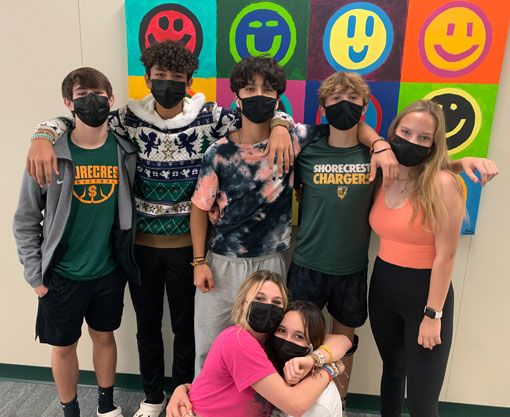

The Opposite of Loneliness
Source/Author: Nancy L. Spencer, Head of School
December 10, 2021
In May 2012, a Yale senior named Marina Keegan wrote her final column for the Commencement edition of the school newspaper. Her essay entitled "The Opposite of Loneliness" began, “we don’t have a word for the opposite of loneliness, but if we did, I could say that’s what I want in life… It’s not quite love and it’s not quite community; it’s just this feeling that there are people, an abundance of people, who are in this together. Who are on your team.”
Marina had discovered that college was full of small circles that students pulled around themselves: dormitories, sports teams, fraternities and sororities, academic societies, singing groups, clubs. “These tiny groups make us feel loved and safe and part of something even on our loneliest nights.” Tragically, Marina was killed in a car accident within days of her college graduation.
At Shorecrest, we want to be a place where every person feels the way Marina did. We all crave human connection. Scientist Matthew Lieberman even states that our need to connect is as crucial as our need for food and water. Our goal, as my colleague Mr. Fludd often says, is for Shorecrest to be a place that feels like home for everyone.
We all have this same basic need to connect. Throughout a student’s years at Shorecrest, teachers, staff and coaches work with children and young adults to develop the skills to successfully establish healthy friendships and relationships with others. At each stage of development, children learn to navigate social and emotional interactions with others.
It is important to acknowledge the difference between “belonging” and “fitting in” within a school environment. Belonging is embracing who you are and sharing yourself with the community. Fitting in is altering your personality to fit a mold.
Dr. Brené Brown, a visiting professor in management at the University of Texas at Austin McCombs School of Business and research professor at the University of Houston, describes “fitting in [as] the greatest barrier to belonging. Fitting in, I’ve discovered during the past decade of research, is assessing situations and groups of people, then twisting yourself into a human pretzel in order to get them to let you hang out with them. Belonging is something else entirely — it’s showing up and letting yourself be seen and known as you really are. You cannot belong when you’re committed to trying to fit in.”
We want Shorecrest to be a community that is diverse and broad enough that there are sufficient overlapping groups to provide small circles of belonging for everyone. We want all members of the community to bring their authentic selves to school every day. And we are working to make Shorecrest a place where everyone feels as though there are people “who are on your team,” where a sense of connection creates the opposite of loneliness.
All the best,
Nancy
























